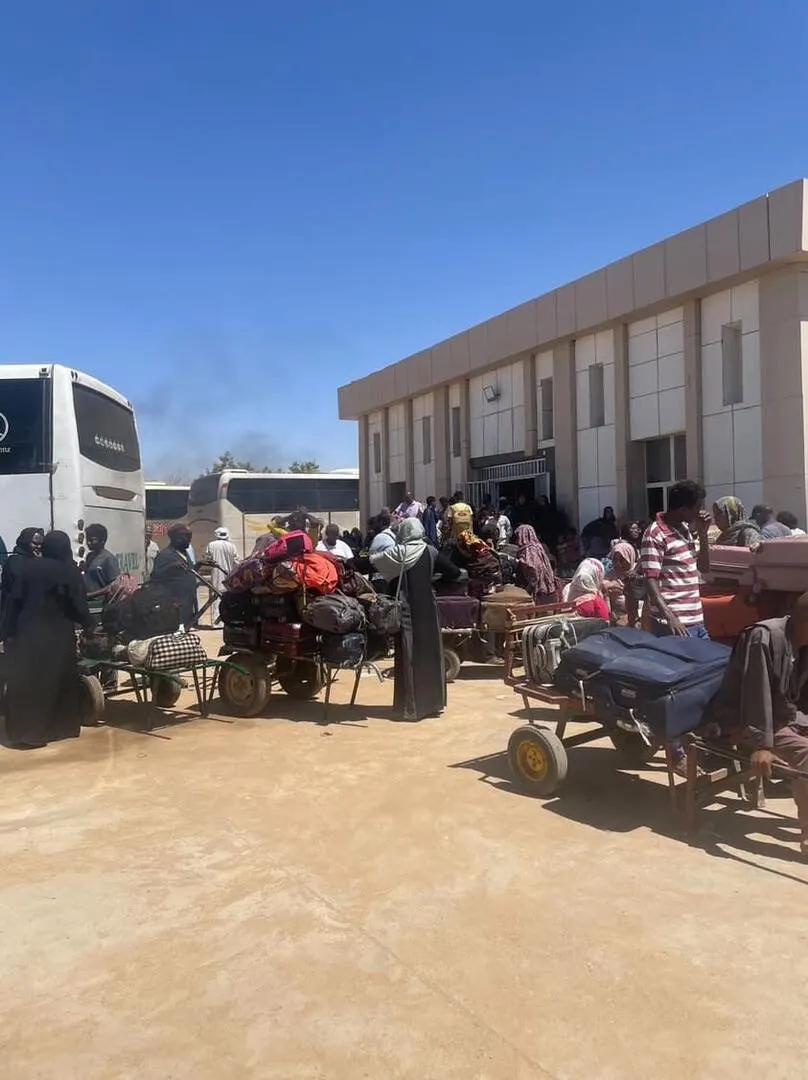Laetitia Bader, the director of Human Rights Watch Horn of Africa, and Christopher Tounsel, the University of Washington African Studies program director and history professor, called for increased awareness and media coverage on the ongoing humanitarian crisis in Sudan following the country’s 2019 revolution at a panel event on Monday.
The event was co-sponsored by the Abbasi Program in Islamic Studies, the Center for African Studies, the Center for Human Rights and International Justice and the Middle Eastern Studies Forum.
Since mid-April 2023, conflict in Sudan between the national armed forces and the Rapid Support Forces (RSF) — a paramilitary group — has killed at least 15,000 civilians and displaced over 10 million people from their homes.
In August, the United Nations officially declared famine in the Zamzam internally displaced person (IDP) camp in the besieged city of el-Fasher.
“We are 17 months into a conflict, one of the worst humanitarian disasters on the planet right now,” Bader said. “It is the only country in the world where famine has been declared in years.”
Bader condemned the absence of a U.N. convoy in the region to address the hunger crisis.
With 25 million people in dire need of humanitarian assistance, Sudan’s Emergency Response Rooms (ERRs) — decentralized civilian-led mutual aid networks — have provided lifesaving aid to thousands of displaced individuals across the country. In recognition of these efforts, the ERRs were nominated for the 2024 Nobel Peace Prize.
“In many ways, they have been the only heroes of the story for many years, going back to the revolution,” Bader said.
According to the speakers, the war’s mass atrocities and human rights violations serve as a brutal continuation of the genocidal violence and ethnic cleansing that have ravaged Darfur — a region in western Sudan — since the early 2000s. Bader said that since mid-2019, the removal of peacekeeping forces from West Darfur has been directly correlated with an increase in violence and abuses committed by the RSF against the region’s predominantly ethnic Massalit population.
In producing the Human Rights Watch report on atrocities in West Darfur, Bader’s team of researchers interviewed hundreds of displaced Sudanese in a refugee camp in eastern Chad.
“There wasn’t a single person [the researchers] spoke to who hadn’t witnessed horrific crimes, who hadn’t lost a loved one in those weeks of horror,” Bader said.
Tounsel said one of the tragedies of the conflict has been the media’s lackluster coverage of Sudan “relative to other ongoing crises.” Amid heightened focus on the Israel-Gaza and Ukraine-Russia wars, Tounsel added, the international community has struggled to give comparable attention to Sudan’s ongoing conflict.
Tounsel named racism and hegemonic narratives as some reasons underlying the disparity in coverage, adding that other Black-owned newspapers have called attention to the conflict.
“I would say [it is a] willfully overlooked conflict,” Bader said. “But not a forgotten conflict.”
The social media campaign “All eyes on Sudan” has also built up a substantial online presence, with 3 million people viewing their posts. Tounsel said the campaign was the result of collaboration between African Americans, Sudanese and members of the Sudanese diaspora to highlight an under-covered moment.
For Bader, the ethnic cleansing, sexual violence, lack of healthcare and widespread war crimes detailed in reports paints a grim picture of the Sudanese conflict. In light of increased technology and weapons arriving in the country, Bader called for international intervention, including targeted sanctions and the deployment of a new civilian mission.
“I think it is critical, in the last few months of the Biden administration, to press at the highest levels for there to be a diplomatic push right now to see the deployment of the mission,” Bader said. “Obviously, this has to be in collaboration with the African Union.”
In a question and answer section, Samah Abdelrahim, a third-year psychology Ph.D. student from Sudan, challenged the speakers on the proposal of sending a foreign peacekeeping mission.
“The Sudanese people I personally know are against this [foreign intervention to stop conflict], because we basically doubt the intention of all the international entities that are actually calling for something like this,” said Abdelrahim, whose home in Sudan is currently occupied by RSF soldiers.
Tounsel acknowledged he understood Sudanese distrust of foreign intervention, and Bader emphasized any intervention must be coordinated with the African Union.
“I’m always [amazed] to see so many Sudanese who continue to fight, quite literally risking their lives for a better Sudan,” Bader said. “It is hard to be hopeful at the moment, but I think it is important to see that everyone can make a bit of a difference.”
“Politicians need to hear that people care,” she added.
